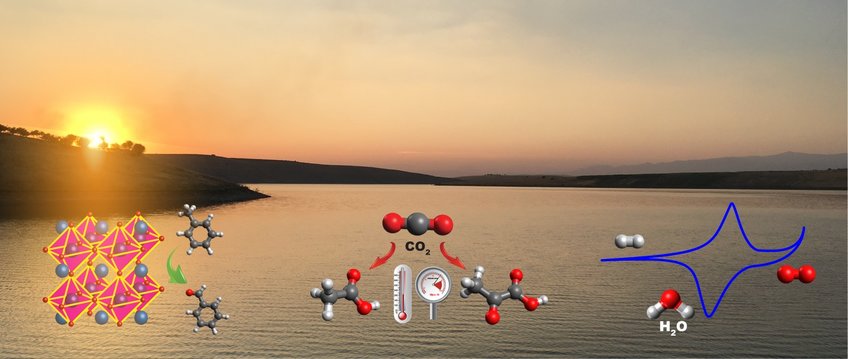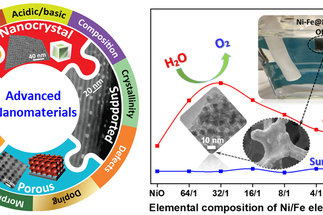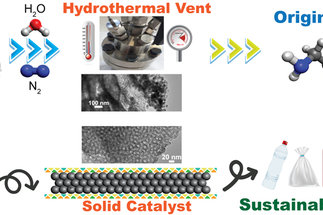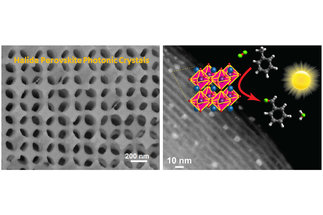Heterogeneous Catalysis and Sustainable Energy
The main focus of our research group is the design and development of functional nanostructured materials for sustainable energy related catalytic applications. Our motivation is to advance understanding of structure-activity relationships in the field of heterogeneous catalysis and materials science. One of our key strategies is the precise control of structure, morphology, topology and composition of materials at a nanoscale through top–down and bottom-up approaches, particularly using soft and hard templating methods. Fundamental target reactions include water splitting and catalytic conversion of CO and CO2. We are also interested in the design of nanostructured halide perovskites and investigation of their novel catalytic properties and potentials.
Research Topics:
Inspired by artificial photosynthesis, the photoelectrolysis of water directly with sunlight to produce clean H2 is a very promising route for solar energy conversion to chemical energy. Water splitting consists of two half reactions, namely the oxygen evolution reaction (OER) and hydrogen evolution reaction (HER). OER is kinetically...
[more]
Mono-dispersed nanocrystals with reduced dimensions exhibit novel chemical, electrical, optical, and magnetic properties not seen in their bulk counterparts and have therefore tantalized and attracted increasing research interest over the past decade for both their fundamental and technological importance...
[more]
Around 80 per cent of world’s current energy consumption is based on non-renewable fossil fuels. Due to the consumption of unsustainable energy source, new and feasible alternatives must be uncovered. Among the plethora of potential substitutes for fossil fuels, solar energy has gained...
[more]
News:
Dr. Jinsun Lee from South Korea is working as a postdoc at the MPI für Kohlenforschung
more
Tüysüz group publishes two exciting papers in high-level journals
more
The new type of OER electrocatalyst has been discovered by PD Dr. Harun Tüysüz (Max-Planck-Institut für Kohlenforschung), Prof. Dr. Claudia Felser (Max-Planck-Institut für Chemische Physik fester Stoffe) and co-workers.
more
Mülheim institute will provide mechanistic studies on catalysts
more
Show more
Research Reports:








